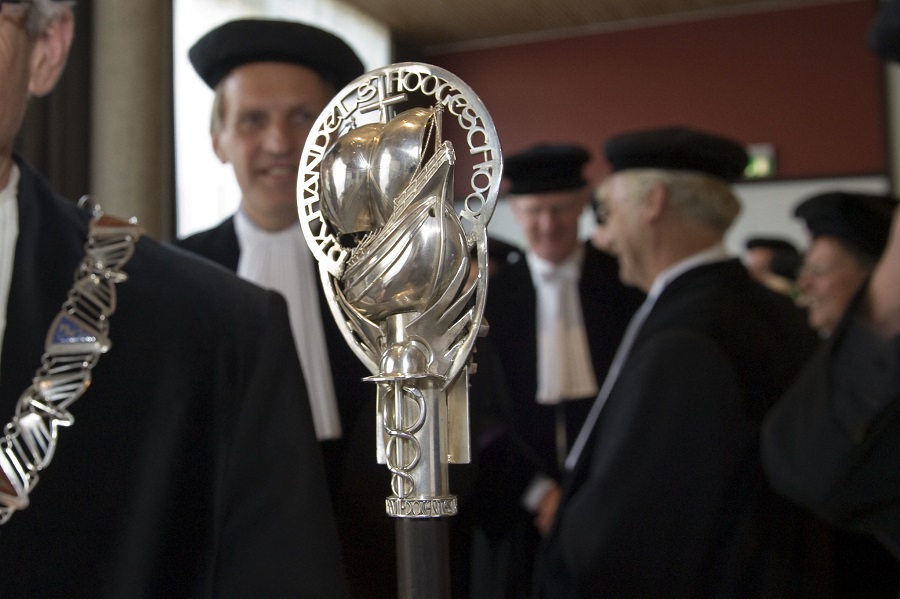Give Associate and Assistant Professors the right to promote PhD students
Recent investments in Dutch higher education will lead to an increase in PhD students. This means it is time to open up the ius promovendi, Tilburg Young Academy argues. Not only full professors, but also associate and assistant professors should have the right to promote PhD students.

Over the past decades, the enormous influx of new students at Dutch universities has led to an unhealthy workload for virtually all scientific staff, who were often forced to carry out their research tasks during evenings and weekends due to a substantial increase in teaching load. The recently announced new investments in Dutch higher education will finally seek to remedy this situation as they allow for hiring a substantial number of new academic staff members at the Assistant Professor level. And there is more: individual €300k Starter Grants will allow these new colleagues to kick-start their new academic position.
Regardless of whether these Starter Grants are a good idea to begin with, they will undoubtedly lead to an increase in available PhD positions at Dutch universities. PhD students are attractive for universities, as they have the time available to carry out laborious research work while every doctorate yields the university a serious financial bonus. Under the new Starter Grant scheme, Assistant Professors will have the funds available to hire a PhD student and – due to all the benefits they bring – it is not unlikely that universities will strongly push them to do so.
Every PhD student requires a promotor, in the current system typically an experienced Full Professor who – by virtue of being a Full Professor – has the right to promote PhD students: the ius promovendi. As such, the new Assistant Professors will feel the urge to formally involve a Full Professor in their project. This strongly hierarchical system has shown to be problematic for at least four reasons, and the new Starter Grant scheme will unfortunately make matters only worse.
Four reasons for opening up the ius promovendi
First, Full Professors already have too much work on their plates. We do not know of a single Full Professor who manages to complete their tasks within the hours that come with their appointment. As such, it is often the more ‘junior’ colleagues taking over the lion share of (daily) supervisory tasks. An increase in the average number of PhD students supervised per Full Professor will not improve this situation – au contraire!
Second, it is questionable to award the right to promote PhD students purely based on somebody’s rank in the academic hierarchy. Being a Full Professor does not equal being a knowledgeable and supportive supervisor. In the current system, due to the relative scarcity of promotors in comparison to the relatively large number of PhD students, many Full Professors supervise projects on topics they are not an expert in. And it is common knowledge that the supervisor has a huge impact on the success of the PhD trajectory. Ideally, PhD students therefore pick their promotor from a larger pool of candidates. This would allow them to find the best scientific and personal match, reducing the serious social safety issues the current system creates.
Third, the gender imbalance – in 2022! – in Full Professors is staggering, in that only about a quarter of all Full Professors at Tilburg University is female. In this overall medieval context, the current system encourages Assistant and Associate Professors to involve a Full Professor in their project in case they receive external funding that allows hiring one or more PhD students. If mainly Full Professors can have the ius promovendi, this keeps in place a male-dominant system in which ‘junior’ and female colleagues do much of the supervisory work, but the credits go elsewhere. PhD candidates are a heterogenous and diverse group and should be able to work with a heterogeneous and diverse group of more experienced role models.
Fourth, the situation in Tilburg is a peculiarity when we compare it to its sister universities that are equally well-known for producing high quality research. The restrictions surrounding the ius promovendi are uncommon in the United States, Germany, France, and the UK.Other Dutch universities such as UvA and VU do allow Assistant and Associate Professors the ius promovendi and we have not seen them tumble down the international university rankings since. As such, the current situation disadvantages a substantial group of TiU’s scientific staff compared to their (inter)national peers.
Step in the right direction
The solution to these issues is clear: provide the ius promovendi to Associate Professors by default and to Assistant Professors after a portfolio check. Associate Professors and many Assistant Professors have years of experience and are typically no less capable than Full Professors to supervise their PhD students in the best possible way. We deem it unlikely that they will outsource supervisory tasks to a nail studio, provide their PhD students with fabricated data, promote as many students as possible just to make money, or contribute to a PhD defense in which the diploma is not awarded.
In the present times of Recognition and Rewards, the credits of being a promotor should go to the person(s) who deserve them in light of the intellectual, supervisory, and moral support delivered during the PhD trajectory. Indeed, opening up the ius promovendi to the PhD student’s primary supervisor is a necessary, correct, and timely first step in that right direction and will resolve the four serious issues outlined above.






